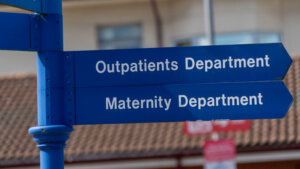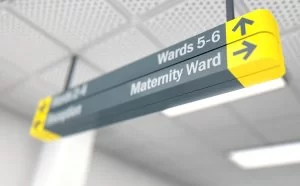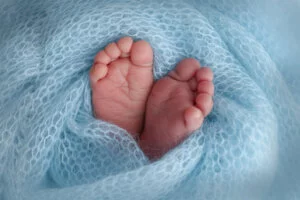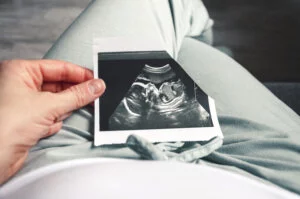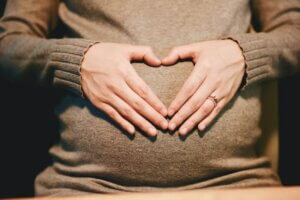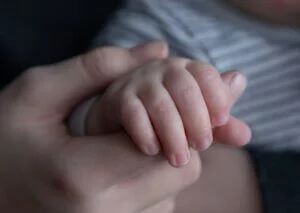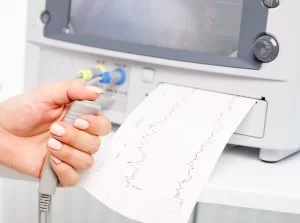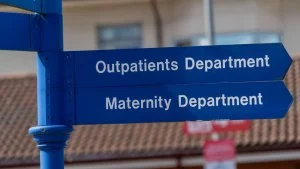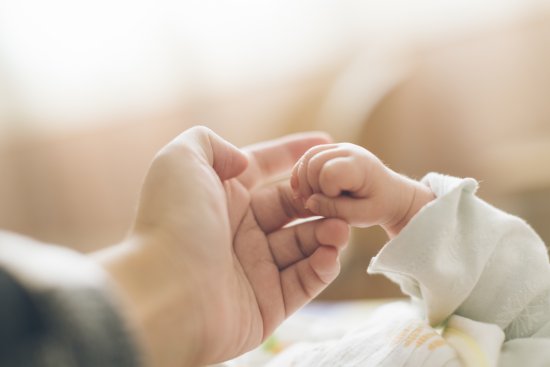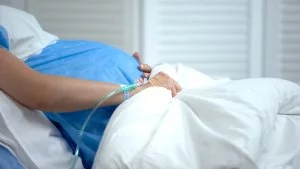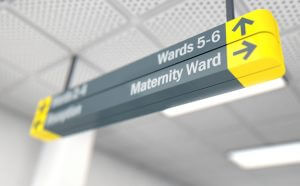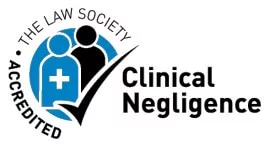Birth Injury Claims
Our Birth Injury Lawyers Can Help You Claim Compensation
Birth injuries can include injuries to both the mother or baby or both as a result of negligent medical care during childbirth. Sadly, the impact of suffering such serious injuries can be life-changing. If you or your child have been affected, contact our specialist birth injury solicitors for help.
Birth Injury Solicitors
Our highly regarded birth injury solicitors are experts in the field of medical negligence and secure multi-million-pound settlements for birth injuries that were caused by improper care. The team is led by our Partner and Head of Obstetric and Birth Injuries, Jodi Newton. Jodi and her team are renowned for providing outstanding service to clients on a national level throughout England and Wales.
Table of Contents
At Osbornes Law, we fight hard to get birth-injured children and mothers the best care, advocacy and support. We are proud to work with charities that support injured patients and their families. These include Action Against Medical Accidents, Headway, The Brain Injury Group, Spinal Injuries Association and the Association of Personal Injury Lawyers.
With over 50 years of experience, our expert birth injury lawyers have secured clients multi-million compensation settlements for birth-injured children and mothers. We understand the devastating effects a birth injury can have on the whole family. We can help you prove that a medical mistake happened and secure compensation to cover the costs of any treatment, rehabilitation, and home adaptations you may need.
What is considered a birth injury?
A birth injury is any injury that a mother or baby suffers before, during or directly after childbirth. These injuries are relatively common. Fortunately, most are minor and heal by themselves in a few days or weeks.
Some birth injuries are more severe. They can result in long-term injury to the mother, or a child having a disability for the rest of their life. For the birthing mother, common injuries include maternal infection, uterine rupture, haemorrhage, third and fourth-degree perineal tears, and complications caused by episiotomies and caesarean sections.
For the baby, common injuries include fractures to the skull or limbs and oxygen starvation, which can lead to conditions such as cerebral palsy, epilepsy and learning difficulties. Rarely, a child will be stillborn because of a medical mistake.
We specialise in serious and often complex birth injury claims, including:
- Cerebral Palsy Claims
- Stillbirth Claims
- Erb’s Palsy Claims
- Spina Bifida Claims
- Miscarriage Misdiagnosis Claims
- Birth Injuries to Mother Claims
- Group B Strep Claims
- Pregnancy Negligence Claims
- Wrongful Birth Claims
Working hand-in-hand with you and your child’s support team, we can help signpost you to charities, groups and medical practitioners who can provide life-changing services to support your child’s future. Our job is to ensure you have access to the best therapists and care packages to help protect your family’s quality of life.
What is a birth injury claim?
A birth injury claim is a type of medical negligence claim. It arises whenever a doctor, midwife or other healthcare professional makes a mistake during pregnancy or childbirth, and that mistake causes you or the baby harm. Forms of medical negligence during childbirth include:
- Failing to monitor the pregnancy or birth properly
- Failing to spot a problem such as a prolapsed umbilical cord
- Being slow to act in a dangerous situation
- Allowing the labour to go on too long before moving to caesarean
- Misuse of tools such as forceps or vacuum extractors
- Use of unnecessary force during childbirth
- Surgical errors
To prove birth injury negligence, we work with independent medical experts to investigate what went wrong and whether the care you received fell below the acceptable standard.
You can make a birth injuries claim about both NHS and private treatment. Please contact us to establish your legal position today.
How do I make a birth injury claim?
Birth injury claims can be complicated and challenging, so it is vital to consult with a specialist birth injury solicitor to guide you through the process effectively.
1. Contact our specialist birth injury lawyers.
We’ll meet you face-to-face before taking the case on. The appointment can take place at your home, in hospital or at our offices, whatever is best for you. We will assess your case and advise whether you have a valid injury claim.
2. Decide to work with us.
Following our meeting, we’ll advise you about the prospects of success, the potential value of your birth injury claim, and how long it will take. If we all agree that Osborne Law should take your case on, we will discuss the funding of your claim, including whether to run your claim under a No Win No Fee agreement.
You’ll have direct access to a dedicated case worker throughout your case. They will keep you informed of the progress of your claim and consult you about all decisions relating to your case.
3. Investigate the claim
To help us prepare your claim, we’ll obtain a full set of your medical records and review them in detail. We will also take a detailed record of your version of events and check this against your medical records. Sometimes, there are discrepancies between your account and the medical records, which we need to know about when preparing your case.
4. Independent medical reports
To help prove that negligence occurred, we may consult with a medical professional who can provide an expert opinion on whether the injury was a result of medical negligence or an unavoidable complication. They will conduct a physical examination and prepare a medical report giving their opinion about the injuries to the mother or baby and what treatment should (or should not) have been given.
The medical report helps us to establish a link between substandard medical care and subsequent birth injuries. It’s important that the medical assessment fully reflects the injuries so we can negotiate the settlement figure you deserve.
5. Letter of claim
We’ll write to the healthcare provider that treated you, telling them that you’re taking legal action – this could be your GP or the local NHS Trust. While the Letter of Claim is not an official court document, it outlines your allegations and requests compensation. The NHS Trust has 14 days to acknowledge receipt of the letter and four months to conduct their own investigations and respond. At this point, we find out if the healthcare provider admits liability or disputes the claim.
6. Negotiate a settlement
If the healthcare provider accepts liability, we can start negotiating a settlement based on what we think you’re entitled to. The amount will reflect the type and severity of your birth injuries. We can also apply for an Interim Payment if you need urgent funds or medical care before the settlement is agreed upon.
7. Issue court proceedings
If the healthcare provider denies liability or we can’t agree on a suitable settlement, we may need to start court proceedings. As a first step, the Court will set a timetable for the various stages of the litigation. This can stretch over many months, so we keep negotiating with the other side and try to reach an agreement before a court hearing is necessary. We may arrange mediation or some form of alternative dispute resolution at any point of the claim, as this can often lead to a faster, more amicable outcome and help keep costs down.
8. Settlement or court decision
Only a very small percentage of birth injury claims go to trial. If yours does, then a judge will decide on the outcome after hearing evidence from both sides. You will receive compensation for your injuries, financial losses, and legal costs if successful. If unsuccessful, you may not receive compensation and may have to pay the defendant’s legal costs.
Why choose Osbornes Law?
Birth injury claims can be complex, but having experienced solicitors on your side can make a difference. For over 50 years, our firm has specialised in complex birth injury claims, focusing on achieving life-changing compensation awards for our birth-injured clients and their families.
We are widely recognised as being at the top of our profession, achieving consistent top rankings by The Legal 500 and Chambers and Partners for our reputation as specialists in this field.
We work primarily on a No Win, No Fee basis, which makes it easier for everyone to pursue their rights. If your claim is successful, we will deduct our fee from the compensation you receive at the end of your claim.
Birth Injury Lawyer FAQs
How long do you have to make a birth injury claim?
For birth injuries to the mother, you have 3 years to make a claim. In respect of a child, you have 3 years from the child’s 18th birthday, so until they turn 21.
This may seem like a lot of time. However, we recommend that you speak to us as soon as you can. There may be many costs involved in looking after a brain-injured child, including therapies, equipment and specialist education. We can help secure interim payments as early as possible in your case. These payments can be extremely helpful in providing financial support for your family, especially if you have to give up work.
How much compensation might I receive for a birth injury?
Many families ask how much birth injury compensation they’ll receive, but there is no set amount. The goal of compensation is to meet the additional financial needs of the injured child or mother, for as long as their injuries last.
All cases are different. Medical reports are an important part of the process, as they help us to understand the severity of the birth injuries and the impact they have on the child’s life.
Here are some of the things that your birth injuries lawyer will take into consideration when calculating your compensation:
- The pain and suffering caused by the injury
- The lifelong cost of medical care and rehabilitation
- The cost of any special equipment and alterations to your home
- Money lost through changes to work, for example, if you have to leave your job or reduce your hours to care for a birth-injured child
- The cost of everything your child might need in the future, such as a care provider, special education and personal equipment as your child grows
What's the average birth injury settlement?
According to NHS Resolution, the average payout for birth injury is £50,000. Read our case studies to find out more about how we have helped our clients claim compensation.
What is birth asphyxia?
Birth asphyxia is a result of a baby not receiving enough oxygen before, during, or right after birth. If not treated immediately to ensure that the baby receives sufficient oxygen it can lead to severe injury and can endanger life.
In mild to moderate cases, babies can fully recover. However, in serious cases where immediate treatment is not provided, birth asphyxia can cause permanent brain and organ damage or be fatal. The severity of the injury depends upon how long the baby does not get enough oxygen, the level of oxygen and how quickly the right treatment is receieved.
The most common risk factors leading to birth asphyxia are infections to the mother, multiple births, such as delivering twins, premature births, preeclampsia or eclampsia and abnormal position of the fetus during delivery.
Causes of birth asphyxia include: long and difficult deliveries, problems with the umbilical cord during delivery, the placenta separating from the womb too soon, high or low blood pressure in the mother, anemia – where the baby’s blood cells doesn’t carry enough oxygen, the baby’s airway being blocked.
Is a birth injury the same as birth trauma?
Birth trauma and birth injury are often used interchangeably but can refer to different things.
- Birth trauma usually refers to injuries to the mother such as tearing, nerve damage, or PTSD caused by a traumatic birth experience.
- Birth injury usually refers to injuries to the baby caused by mistakes during delivery.
What is regarded as a traumatic birth?
A traumatic birth refers to negative birth experiences, such as:
- Emergency interventions (such as unplanned caesareans or forceps deliveries)
- Severe perineal tearing or haemorrhaging
- Inadequate pain relief
- Poor communication from medical staff
- A sense that you or your baby’s life was at risk
Birth trauma is thought to affect 30,000 women a year in the UK with one in 20 developing Post Traumatic Stress Disorder (PTSD) as a result. Common symptoms include re-experiencing traumatic events, using avoidance behaviours and feeling a heightened sense of threat.
Can you claim for a traumatic birth?
Yes, as discussed above, you may be able to claim compensation for birth trauma if mistakes were made during pregnancy, labour or delivery that caused an injury and those mistakes were the result of negligent care.
Can childbirth cause permanent nerve damage?
Yes, childbirth can cause nerve damage, and in some cases, the effects can be long-term or permanent. This may happen due to pressure on nerves during a prolonged labour, the use of instruments like forceps, positioning during delivery, or epidural administration.
Common types of nerve damage during childbirth include:
- Pudendal nerve damage – affecting bladder, bowel, or sexual function
- Femoral or sciatic nerve injury – causing weakness, pain, or numbness in the legs
- Nerve damage from poorly administered epidurals or spinal blocks
While some nerve injuries resolve themselves over time, others can lead to lasting complications.
What is being done to prevent birth trauma?
An All-Party Parliamentary Group has called for a huge overhaul of maternity and post-natal care after hearing the distressing evidence of over 1,300 women who suffered traumatic perinatal experiences.
The Birth Trauma Inquiry has asked for urgent change, including:
- Ending a discernible postcode lottery on perinatal care.
- A new Maternity Commissioner to be appointed.
- For the government to publish a new national maternity strategy.
Are women from ethnic minorities more likely to experience birth injuries?
The Birth Trauma Inquiry found that women from marginalised groups, particularly ethnic minorities, appear to have experienced noticeably poor care. It is sadly the case that we recognise this pattern through the snapshot of enquiries our department receives. MMBRACE’s most recent report analysing data from 2020-2022, revealed that Black and Asian women had significantly higher rates of stillbirths. It was further found that black women are 1.5 times more likely to developed pre-eclampsia than white women and six times more likely to develop pre-eclampsia superimposed on chronic hypertension
Speak to a birth injury lawyer
Call us 020 7485 8811
Email us Send us an email and we’ll get back to you
Jodi Newton holds over 20 years of experience in birth and surgical injury cases, including those pertaining to cerebral palsy, negligent treatment of sepsis, and negligent A&E treatment.
Practice head Stephanie Prior is noted for her expertise in birth injury litigation, including cases resulting in serious cognitive injuries.
The team handles a host of complex maternal claims, including cognitive injuries as a result of delayed birth treatments, cerebral palsy, and vaginal mesh litigation.
Stephanie Prior is head of the clinical negligence department at Osbornes Law. She acts on a wide range of issues, including claims for brain injuries sustained at birth and delays in diagnosis. She frequently represents clients in fatal claims involving surgical error.
"Stephanie Prior is the leading spokesperson on the high profile maternity scandal cases involving many NHS Trusts."
Stephanie has developed a particularly strong reputation for her handling of birth injury claims, as well as cases concerning surgical negligence and delays in surgery.
Birth Injury Client Stories & InsightsVIEW ALL
- 6.5.2025
Six-Figure Settlement for Negligent C-Section Delivery
Osbornes secures a six-figure settlement following a negligent caesarean section delivery Jodi Newton, Partner and head of our Obstetric and...
Read more - 14.10.2024
Multi-Million Settlement in Cerebral Palsy Negligence Case
Judge awards multi-million settlement in cerebral palsy medical negligence claim Jodi Newton, Partner and specialist medical negligence lawyer at Osbornes...
Read more - 19.9.2024
Report highlights failings in maternity care
The Care Quality Commission (CQC) has recently carried out a national review of 131 maternity inspections between 2022 and 2024, finding that failures...
Read more - 28.6.2024
£55,000 Settlement for Stillbirth Claim Against Chelsea and Westminster...
Successful Settlement for Stillbirth Claim Against Chelsea and Westminster Hospital NHS Foundation Trust Background Nick Leahy, an Associate in our...
Read more - 5.1.2024
Delayed Pre-Eclampsia Diagnosis Results in Loss of Baby
Introduction to the case Nick Leahy, Associate in our Clinical Negligence department, has recently settled a birth injury claim against...
Read more - 23.11.2023
Claim against Bradford Teaching Hospitals NHS Foundation Trust
High-risk pregnancy following previous miscarriage Osbornes acted for a Claimant, C, in her birth negligence claim against Bradford Teaching Hospitals...
Read more - 31.8.2023
Hyponatraemia – Symptoms, Causes & Negligence
What is hyponatraemia? Hyponatraemia is a condition where sodium levels fall below a certain level, which can be dangerous. All...
Read more - 23.3.2023
Private Pregnancy Scans and Substandard Care
In the news, it has been reported that private clinics that offer pregnancy scans to women are not meeting the...
Read more - 7.3.2023
5-figure settlement for iron infusion claim
Successful claim following post c-section iron infusion Osbornes Law have reached another successful outcome for a Claimant, who pursued a...
Read more - 9.2.2023
Perineal tear claim settles for 6-figure sum
Successful claim for mother with third-degree perineal tear Osbornes Law recently settled a birth injury claim for a woman who...
Read more - 2.10.2022
Tragic Case Involving a Home Water Birth
Introduction to the case Nicholas Leahy is acting for a young woman who had a water birth at home and...
Read more - 21.9.2022
Are maternity services safe? – Part 2
In April last year I wrote a piece about government setting up a taskforce to look into why there are...
Read more - 8.9.2022
Poor interpretation of CTG can result in stillbirth...
Poor interpretation of a Cardiotocograph, more commonly known as a CTG, is a leading cause of stillbirth and brain injuries...
Read more - 2.9.2022
Mother & Baby Suffer Life-changing Injuries
Claim after mother and baby suffered life-changing injuries during birth Jodi is acting for both mother and baby in a...
Read more - 29.6.2022
Nottingham Maternity: Donna Ockenden to Chair Independent Inquiry
An interim report on the state of maternity services at Nottingham University Hospitals NHS Trust has just been released. However,...
Read more - 23.5.2022
Uterine Rupture Claim Against King’s College Hospitals
Significant settlement in uterine rupture claim The birth injury solicitors at Osbornes Law recently secured a significant settlement for a...
Read more - 23.2.2022
Women from ethnic minorities experience worse maternity care
It has been reported today that the government has set up a new task force to look into why there...
Read more - 27.1.2022
Six-figure claim allows family to move home
Six-figure compensation payment for a client Jodi Newton has secured a six-figure compensation payment for her client with cerebral palsy....
Read more - 24.1.2022
Likely settlement of £15-20 million
A client who suffered cerebral palsy injuries at birth was awarded £200,000 as an interim payment in a claim against NHS...
Read more - 12.1.2022
Wrongful birth claim successfully settled
Background to the case Our client, J, fell pregnant in October 2015 and took the difficult decision to undergo a termination....
Read more - 2.1.2022
Justice for Family Who Faced Loss of Newborn
Osbornes Law specialises in assisting families who have experienced birth injuries. We have represented families who have faced the loss...
Read more - 17.11.2021
NICE revises guidelines on Induced labour
Most babies are born naturally at around 40 weeks gestation. However, some pregnancies continue for longer. According to data from the...
Read more - 2.10.2021
Cerebral Palsy Compensation Supports Rehabilitation & Housing
Six-figure sum compensation for client with cerebral palsy Jodi achieved a six-figure sum compensation for her client with cerebral palsy....
Read more - 1.7.2021
Stillbirth following water birth at home
Nicholas Leahy acted for a young woman who had a water birth at home and two midwives were allocated to...
Read more



